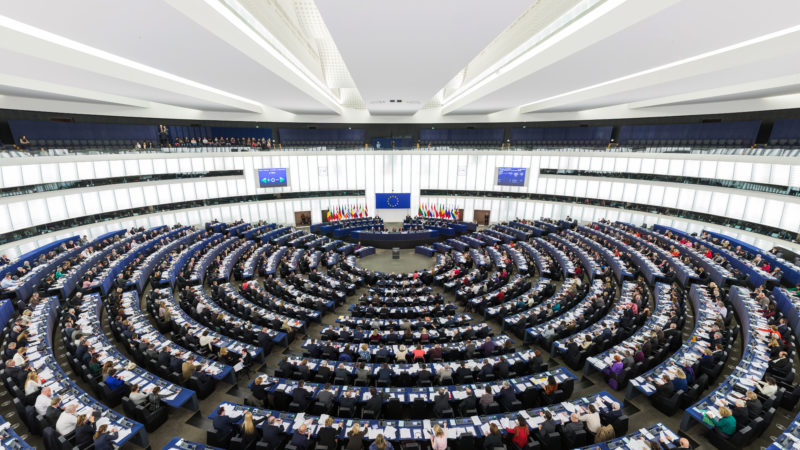
Democracy and the right for us to have our say has always been at the heart of our movement. We have organised and been well disciplined to make sure that working people are represented. From the sabres of Peterloo to Mark Francois’ ridiculous comments that he might use his (territorial) army training to ensure a hard Brexit, the right’s determination to stop the people from voting again remains visceral.
Today, in their through-the-looking-glass world, to have a public vote on the Brexit deal would be to undermine democracy and the greatest crime of all would be to elect new representatives to a European Parliament. Even though any Brexit deal will see that body making our laws for years to come.
The fact that either argument has even a shred of credibility is a sad commentary on the decline of the quality of public debate the 2016 referendum helped create. Then politicians – mostly of the right, but some of the left too – made all sorts of contradictory promises and, when confronted, offered a series of dishonest justifications.
We are in a different world now: one where, despite attempts to suppress them, the facts are beginning to become clear. Now we know what is at risk from any form of Brexit, what it will cost and what damage it will do to opportunities, job security and public and private investment. It is that change in the terms of debate – away from the vague conceptual arguments of 2016 to one where facts and consequences are known – that is making the supporters of Brexit ever more shrill.
At heart, they increasingly know that the result of 2016 was a moment, not a mandate. They lack any confidence that, in a new campaign, their claims would withstand the level of scrutiny that they would inevitably face now that we know what Brexit would really mean.
The most ridiculous argument of all, though, is that we cannot contemplate holding a People’s Vote because the delay involved would require us to hold European elections. That may or may not be true – certainly it seems extremely unlikely (though even now not impossible) that we could hold a new referendum by the start of July, when the new parliament meets, though the nature of the law here might be more flexible than many think.
But let us assume, for the sake of argument, that we would have to participate. So what? If we vote to stay, we need our MEPs and if we leave then the issue of MEPs would be the least of our worries. Perhaps the argument is that we would have borne the cost of an election where those elected served only for a few months – but that is also what happened in 1950 and then in 1974 in Westminster. In any case, the short-term cost of holding a poll is small compared to the long-term consequences of leaving the EU – not least the £50bn divorce bill we will have to pay.
The truth seems to be that European elections matter in the battle between the Tories and UKIP for the far-right vote. In 2014, UKIP beat the Conservatives by less than 600,000 votes in a low-turnout election yet this was enough to convince David Cameron that he should gamble with the UK’s future in an in-out referendum. No disrespect to MEPs, who – Nigel Farage excepted – generally do a good job, but the idea that European parliamentary elections are, or ever were, a basis on which to make decisions that will affect the country for generations to come is nonsense. That Theresa May should hide behind the suggestion that stopping the elections happening is a major question facing our country is unsurprising, but just as stupid.
The honest truth is that those most agitated about the prospect of holding European elections are those who have always been the first to claim that the EU lacks democratic accountability. Their words should stick in their throats today as they tell us how terrible it would be to elect our representatives.




More from LabourList
Reeves bets on patience over populism
‘Energy efficiency changes must work for older private renters’
‘Labour’s creative destruction dilemma’